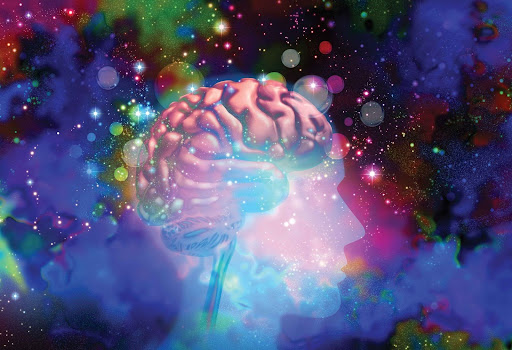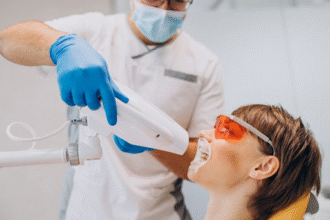Psilocybin, the active compound in “magic mushrooms,” is gaining recognition for its potential to treat depression, anxiety, PTSD, and addiction. As psychedelic-assisted therapy moves into the mainstream, it’s crucial to understand psilocybin contraindications—the specific medical, psychological, or situational factors that could make its use unsafe or ineffective.
- What Is Psilocybin?
- Understanding Psilocybin Contraindications
- Mental Health Conditions That May Be Contraindicated
- 1. Psychotic Disorders (e.g., Schizophrenia, Schizoaffective Disorder)
- 2. Bipolar Disorder
- 3. Severe Personality Disorders
- Medical Conditions That May Interfere with Psilocybin Use
- Medication Interactions with Psilocybin
- Situational and Psychological Factors
- The Role of Screening and Professional Oversight
- What If You Have a Contraindication?
- Conclusion
Despite promising clinical outcomes, psilocybin is not suitable for everyone. This article explores the key contraindications, potential risks, and the importance of medical screening before engaging in any psilocybin-based treatment.
What Is Psilocybin?
Psilocybin is a naturally occurring psychedelic compound found in over 180 species of mushrooms. When ingested, psilocybin is converted into psilocin, which binds to serotonin receptors in the brain and produces altered perceptions, emotional shifts, and profound psychological experiences.
Researchers and clinicians are increasingly interested in psilocybin mushrooms ability to promote neuroplasticity, emotional insight, and long-term mental health benefits. However, these benefits come with conditions—and they’re not suitable for everyone.
Understanding Psilocybin Contraindications
What Are Contraindications?
In medicine, a contraindication refers to a specific situation or condition where a drug or therapy should not be used because it may be harmful to the patient. Psilocybin contraindications range from mental health disorders to medication interactions and certain physical health issues.
Before considering psychedelic therapy, it’s essential to undergo thorough screening by a trained professional. Failing to identify contraindications can lead to adverse outcomes, including psychological distress, worsening mental health symptoms, or even medical emergencies.
Mental Health Conditions That May Be Contraindicated
1. Psychotic Disorders (e.g., Schizophrenia, Schizoaffective Disorder)
Psilocybin is not recommended for individuals with a history of psychotic disorders or those with a family history of schizophrenia. The compound can exacerbate delusions, hallucinations, and disorganized thinking, leading to severe psychological disturbances.
2. Bipolar Disorder
People with bipolar disorder, particularly those prone to manic episodes, are at higher risk of triggering mania or psychosis under the influence of psilocybin. Even in therapeutic settings, it is considered a high-risk population.
3. Severe Personality Disorders
While there’s limited research, individuals with borderline or antisocial personality disorders may not respond well to psilocybin. The intensity of emotional experiences during a psychedelic trip could overwhelm their coping mechanisms, leading to instability or dysregulation.
Medical Conditions That May Interfere with Psilocybin Use
1. Cardiovascular Disease
Psilocybin can increase heart rate and blood pressure during the acute experience. Individuals with hypertension, arrhythmias, or a history of stroke may be at increased risk for complications. A cardiovascular health assessment is recommended before therapy.
2. Epilepsy or Seizure Disorders
Though rare, psychedelics may lower the seizure threshold in susceptible individuals. Until more research confirms safety, those with epilepsy should avoid psilocybin.
3. Pregnancy and Breastfeeding
There is no conclusive data on the safety of psilocybin for pregnant or breastfeeding individuals. Due to unknown risks to the fetus or infant, psilocybin is contraindicated during these periods.
Medication Interactions with Psilocybin
1. SSRIs and Antidepressants
Selective serotonin reuptake inhibitors (SSRIs) may blunt or alter the psychedelic experience by affecting serotonin levels. In some cases, they may reduce psilocybin’s efficacy or introduce serotonin syndrome, a rare but dangerous condition.
2. Antipsychotic Medications
Antipsychotics block dopamine and serotonin receptors, which may suppress or interfere with psilocybin’s effects. Additionally, they are often prescribed to people with conditions that are already contraindicated for psychedelic therapy.
3. Monoamine Oxidase Inhibitors (MAOIs)
MAOIs can dangerously increase serotonin levels when combined with psilocybin, raising the risk of serotonin toxicity. This combination is strongly discouraged unless under strict clinical supervision.
Situational and Psychological Factors
1. Lack of Therapeutic Support
Using psilocybin outside a controlled, therapeutic environment increases the risk of “bad trips”, trauma reactivation, or psychological destabilization. Integration support is critical to process the experience and derive long-term benefits.
2. Unstable Living Conditions
For individuals facing homelessness, domestic violence, or chronic stress, psychedelic therapy may offer too intense an emotional journey without the stability needed to integrate insights.
3. Recent Trauma
While psilocybin can be effective for PTSD and trauma recovery, taking it too soon after a traumatic event may lead to emotional flooding and increased distress. Clinical timing is essential.
The Role of Screening and Professional Oversight
Proper medical and psychological screening can reduce risks associated with psilocybin contraindications. Qualified therapists and psychiatrists should assess:
- Mental health history
- Physical health conditions
- Family history of psychosis
- Current medications
- Readiness for therapeutic work
This is why organizations like the Psychedelic Medical Association are working to educate clinicians and establish safe practices in psychedelic therapy. Their focus on ethics, training, and screening ensures that psilocybin is only used when appropriate and safe.
What If You Have a Contraindication?
If you have one or more contraindications, you still have options:
- Seek alternative treatments: Ketamine-assisted therapy, mindfulness-based therapy, or transcranial magnetic stimulation (TMS) may offer similar benefits without the risks.
- Monitor your condition: Some contraindications, like certain medications, may change over time. With medical guidance, you might become eligible for psilocybin therapy later.
- Join research or support groups: Organizations like the Psychedelic Medical Association often offer resources for those exploring alternatives or waiting for clinical eligibility.
Conclusion
While psilocybin therapy holds great promise for mental health treatment, it’s not without its risks. Understanding psilocybin contraindications is essential for ensuring safety and therapeutic efficacy. Whether you’re considering therapy yourself or supporting a loved one, it’s crucial to consult professionals, undergo proper screening, and respect the limitations that come with this powerful compound.
















